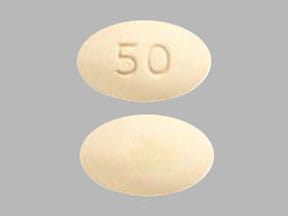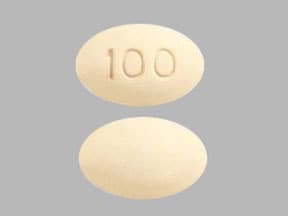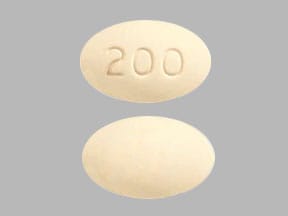What is Stendra?
Stendra is a prescription medicine used to treat erectile dysfunction (ED).
Stendra is not for use in women or children.
It is not known if Stendra is safe and effective in women or children under 18 years of age.
What is the most important information I should know about Stendra?
Stendra can cause your blood pressure to drop suddenly to an unsafe level if it is taken with certain other medicines. Do not take Stendra if you take any medicines called “nitrates.” Nitrates are used to treat chest pain (angina). A sudden drop in blood pressure can cause you to feel dizzy, faint, or have a heart attack or stroke.
Do not take Stendra if you take medicines called guanylate cyclase stimulators which include:
- riociguat (Adempas) a medicine that treats pulmonary arterial hypertension and chronic-thromboembolic pulmonary hypertension
Ask your healthcare provider or pharmacist if any of your medicines are nitrates or guanylate cyclase stimulators, such as riociguat.
Tell all your healthcare providers that you take Stendra. If you need emergency medical care for a heart problem, it will be important for your healthcare provider to know when you last took Stendra.
Stop sexual activity and get medical help right away if you get symptoms such as chest pain, dizziness, or nausea during sex. Sexual activity can put an extra strain on your heart, especially if your heart is already weak from a heart attack or heart disease.
Who should not take Stendra?
Do not take Stendra if you:
- take medicines called “nitrates”
- use street drugs called “poppers” such as amyl nitrate and butyl nitrate
- are allergic to avanafil or any of the ingredients in Stendra. See the end of this leaflet for a complete list of ingredients in Stendra.
What should I tell my healthcare provider before taking Stendra?
Before you take Stendra, tell your healthcare provider if you:
- have or have had heart problems such as a heart attack, irregular heartbeat, angina, or heart failure
- have had heart surgery within the last 6 months
- have had a stroke
- have low blood pressure, or high blood pressure that is not controlled
- have a deformed penis shape
- have had an erection that lasted for more than 4 hours
- have problems with your blood cells such as sickle cell anemia, multiple myeloma, or leukemia
- have retinitis pigmentosa, a rare genetic (runs in families) eye disease
- have ever had severe vision loss, including an eye problem called non-arteritic anterior ischemic optic neuropathy (NAION)
- have bleeding problems
- have or have had stomach ulcers
- have liver problems
- have kidney problems or are having kidney dialysis
- have any other medical conditions
Tell your healthcare provider about all the medicines you take, including prescription and non-prescription medicines, vitamins, and herbal supplements.
Stendra may affect the way other medicines work, and other medicines may affect the way Stendra works causing side effects. Especially tell your healthcare provider if you take any of the following:
- medicines called nitrates (see What is the most important information I should know about Stendra?)
- medicines called guanylate cyclase stimulators, such a riociguat (see What is the most important information I should know about Stendra?)
- medicines called HIV protease inhibitors, such as ritonavir (Norvir), indinavir (Crixivan), saquinavir (Fortavase or Invirase) or atazanir (Reyataz)
- some types of oral antifungal medicines, such as ketoconazole (Nizoral), and itraconozale (Sporanox)
- some types of antibiotics, such as clarithromycin (Biaxin), telithromycin (Ketek), or erythromycin
- medicines called alpha blockers. These include Hytrin (terazosin), Flomax (tamsulosin HCl), Cardura (doxazosin), Minipress (prazosin HCl), Uroxatral (alfuzosin HCl), Jalyn (dutasteride and tamsulosin HCl), or Rapaflo (silodosin). Alpha-blockers are sometimes prescribed for prostate problems or high blood pressure. In some patients, the use of Stendra with alpha-blockers can lead to a drop in blood pressure or to fainting.
- other medicines that treat high blood pressure
- other medicines or treatments for ED
Ask your healthcare provider or pharmacist for a list of these medicines, if you are not sure.
Know the medicines you take. Keep a list of them to show to your healthcare provider and pharmacist when you get a new medicine.
How should I take Stendra?
- Take Stendra exactly as your healthcare provider tells you to take it.
- Your healthcare provider will tell you how much Stendra to take and when to take it.
- Take Stendra 100 mg or 200 mg as early as approximately 15 minutes before sexual activity.
- Take Stendra 50 mg as early as approximately 30 minutes before sexual activity
- Do not take Stendra more than 1 time a day.
- Your healthcare provider may change your dose if needed.
- You should take the lowest dose of Stendra that works for you. You and your healthcare provider should decide about the lowest dose of Stendra that works for you.
- Stendra may be taken with or without food.
- Do not drink too much alcohol when taking Stendra (for example, 3 glasses of wine, or 3 shots of whiskey). Drinking too much alcohol when taking Stendra can increase your chances of getting a headache or getting dizzy, increasing your heart rate, or lowering your blood pressure.
What are the possible side effects of Stendra?
The most common side effects of Stendra are:
- headache
- flushing
- stuffy or runny nose
- sore throat
- back pain
Stendra may uncommonly cause:
- an erection that will not go away (priapism). If you have an erection that lasts more than 4 hours, get medical help right away.
- sudden vision loss in one or both eyes. Sudden vision loss in one or both eyes can be a sign of a serious eye problem called non-arteritic anterior ischemic optic neuropathy (NAION). It is uncertain whether PDE5 inhibitors directly cause vision loss. Stop taking Stendra and call your healthcare provider right away if you have sudden vision loss in one or both eyes.
- sudden hearing decrease or hearing loss. Some people may also have ringing in their ears (tinnitus) or dizziness.
Tell your healthcare provider if you have any side effect that bothers you or does not go away.
These are not all the possible side effects of Stendra. For more information, ask your healthcare provider or pharmacist.
Call your doctor for medical advice about side effects. You may report side effects to FDA at 1-800-FDA-1088.
Stendra Images
General information about the safe and effective use of Stendra
Medicines are sometimes prescribed for purposes other than those listed in a Patient Information leaflet. Do not use Stendra for a condition for which it was not prescribed. Do not give Stendra to other people, even if they have the same symptoms that you have. It may harm them.
This Patient Information leaflet summarizes the most important information about Stendra. If you would like more information, talk with your healthcare provider. You can ask your healthcare provider or pharmacist for information about Stendra that is written for health professionals.
For more information, go to www.STENDRA.com or call 1-844-458-4887.
How should I store Stendra?
- Store Stendra at 68°F to 77°F (20°C to 25°C).
- Keep Stendra out of the light.
Keep Stendra and all medicines out of the reach of children
What are the ingredients in Stendra?
Active ingredient: avanafil
Inactive ingredients: mannitol, fumaric acid, hydroxypropylcellulose, low substituted hydroxypropylcellulose, calcium carbonate, magnesium stearate, and ferric oxide yellow




